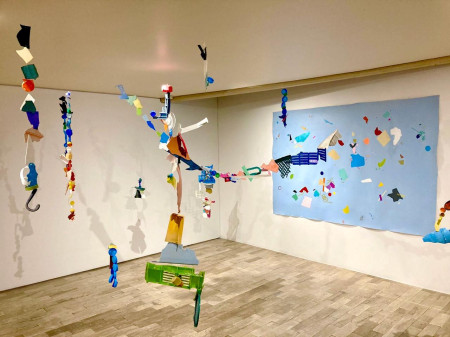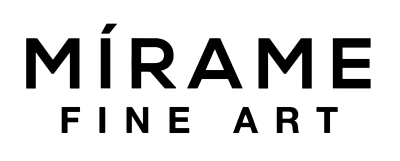MÍRAME Fine Art: Costa Rican Artist, Karla Herencia, Reflects on Ocean Pollution at Tijuana Triennial
Karla Herencia’s Transdisciplinary Installation Showcases the Environmental Crisis

TIJUANA, Mexico, August 18, 2024 (Newswire.com) - The International Triennial of Pictorial Art at the Tijuana Cultural Center (CECUT) features a provocative work by Costa Rican artist Karla Herencia. Titled What Are Those Stains That Float?, Herencia’s installation confronts the devastating impact of plastic pollution on the oceans. As one of Central America’s representatives, her participation marks a significant moment for Latin American art at this event.
Promoting Costa Rica's rich cultural heritage, MÍRAME Fine Art connects artists with art lovers worldwide.
Plastic: A Double-Edged Sword
Herencia’s installation is a visual commentary on our contradictory relationship with plastic. The work, composed of paintings and sculptures crafted from plastic fragments collected on Costa Rica’s Cóbano area in Puntarenas, speaks to the ingenious yet destructive nature of this material. Herencia juxtaposes the alluring qualities of plastic—its versatility and durability—with its catastrophic effects on marine life and ecosystems.
“Although we all know plastics float in the ocean, it’s different when you witness the daily impact,” says Herencia. “I experience this daily during my walks on the beach, where plastic waste is increasingly prevalent.”
The installation’s vivid, multicolored assemblage of plastic debris transforms the gallery space into a metaphorical ocean, capturing the beauty and the horror of plastic pollution. This work is a call to reflect on the broader implications of human invention and environmental degradation.
A Dialogue Between the Natural and the Artificial
Residing on Costa Rica’s Nicoya Peninsula, Herencia’s work is deeply influenced by the region’s dynamic landscape, where oceanic and tectonic energies converge. This setting, rich in natural contrasts, provides fertile ground for Herencia’s exploration of themes like corporeality, territory, and environmental crises.
“My art is a constant conversation with my environment,” Herencia explains. “I explore the intersections of the socio-political, the emotional, and the intuitive.”
Herencia’s background—being the daughter of a Peruvian migrant mother—adds another layer to her work, infusing it with a sensitivity towards primitive materials and ceremonial traditions. She intricately weaves these influences with her ongoing experimentation with discarded materials, offering a poignant commentary on the tension between the natural and the artificial.
Tijuana Triennial: A Platform for Global Voices
Now in its second edition, the Tijuana Triennial has become a critical platform for contemporary artists worldwide. With over 100 works from 15 countries, the event explores new interpretations of the pictorial, pushing the boundaries of traditional painting into experimental realms.
According to Leonor Amarante, the Triennial’s chief curator, this year’s selection examines themes such as artificial intelligence, immigration, and ecology, offering a “visual anthropology of contemporaneity.”
Herencia’s work stands out in this global conversation, representing not just Costa Rica, but a broader Latin American perspective on environmental issues. Her installation remains on view at CECUT until February 2025, inviting audiences to engage with the pressing ecological challenges facing our world today.
Source: MÍRAME Fine Art
